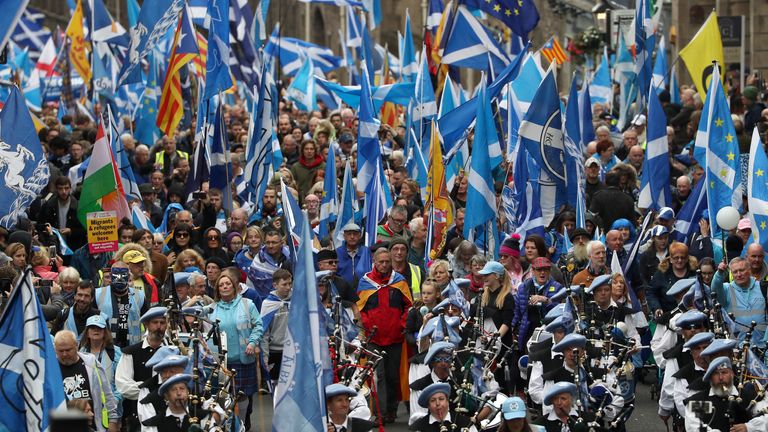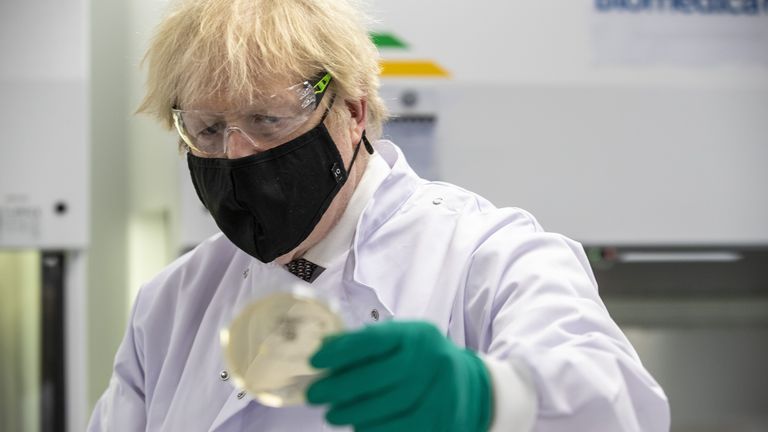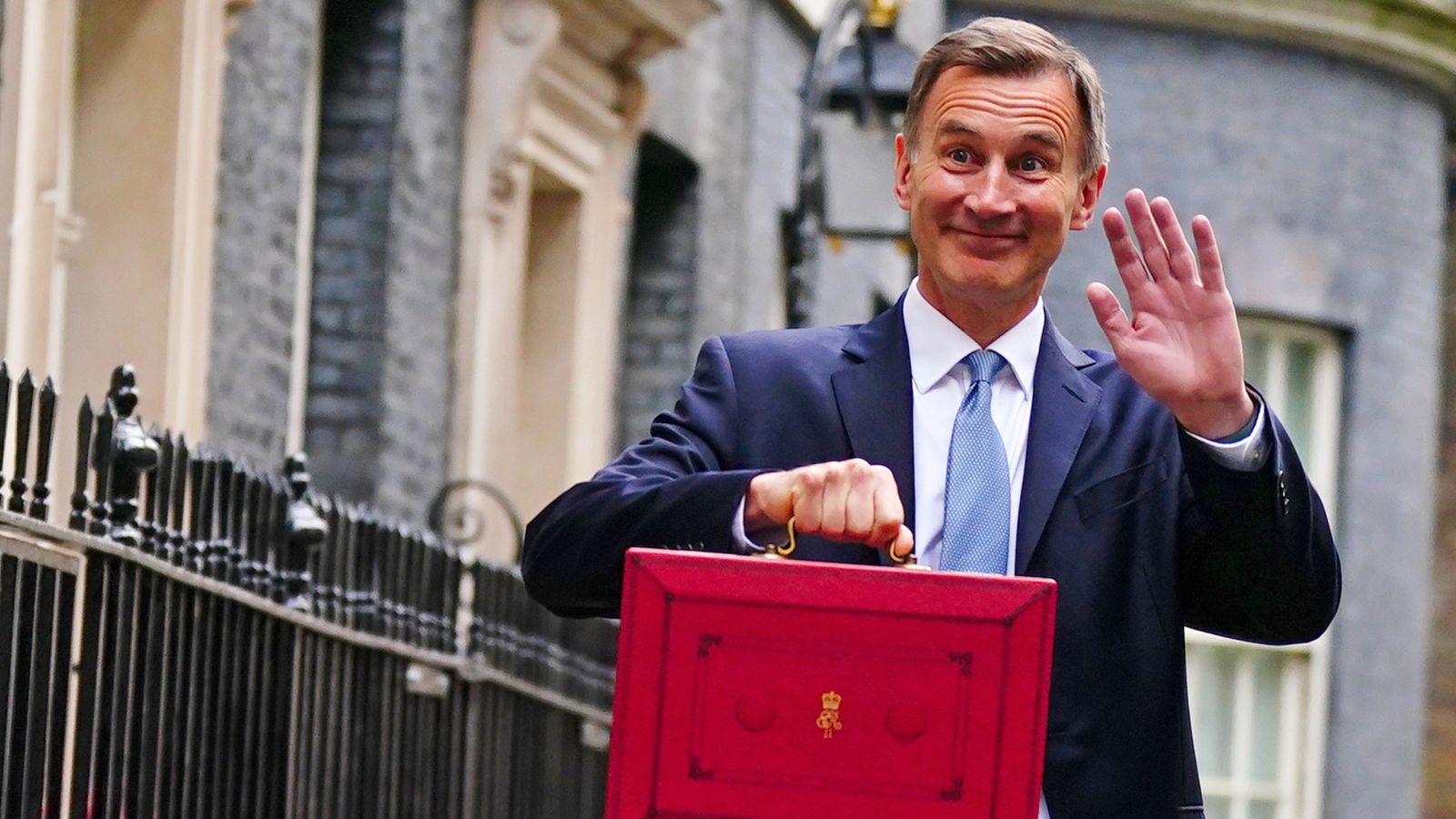Nicola Sturgeon has accused Boris Johnson of being “frightened of democracy” and said she will seek a “legal referendum” on Scottish independence.
Scotland’s first minister claimed the prime minister “fears the verdict and the will of the Scottish people” over his refusal to agree to another independence vote.
It comes after the Scottish National Party revealed a “roadmap to a referendum”, setting out an 11-point plan on how they intend to take forward their plans for a second vote.
The party wants a “legal referendum” to be held after the pandemic if there is a pro-independence majority following May’s Scottish parliamentary elections.
The “roadmap” also states any attempt by the UK government to challenge the legality of the referendum in the courts will be “vigorously opposed”.
Mr Johnson has previously said there should be a 40-year gap between the last Scottish independence vote in 2014 and any future one.
Asked about the prime minister’s comments on the BBC’s Andrew Marr show, Ms Sturgeon said: “He’s frightened of democracy. The polls now show a majority of people in Scotland want independence.
“If the SNP win the Scottish election in a few months’ time on a proposition of giving people that choice then what democrat could rightly stand in the way of that.
“Boris Johnson clearly just fears the verdict and the will of the Scottish people.”
Asked whether she would seek an advisory “home-made Scottish referendum” even if one is refused by Mr Johnson’s government, Ms Sturgeon replied: “I want to have a legal referendum. That’s what I’m going to seek the authority of the Scottish people for in May.
“If they give me that authority, that’s what I intend to do – have a legal referendum, give people in Scotland the right to chose.
“That’s democracy. It’s not about what I want or what Boris Johnson wants.”
Ms Sturgeon also told Marr she believed there was “no reason” to delay the 6 May elections despite the coronavirus pandemic.
“We might have to do the election differently, with postal voting for example, but I see no reason why it shouldn’t go ahead at this stage,” she said.
“Many countries have had elections over the course of the pandemic.”
A Section 30 order – part of the Scotland Act 1998 – allows Holyrood to pass laws normally reserved to Westminster. It was granted by the UK government ahead of the 2014 independence referendum.
A series of polls commissioned by The Sunday Times revealed more voters across all four UK nations expected Scotland to be out of the UK within 10 years than thought it would still remain.
The surveys also found 49% of people in Scotland backed independence compared to 44% against – a margin of 52% to 48% if the undecideds are excluded.
Opposition parties have accused the SNP of putting the push for independence ahead of the response to the coronavirus pandemic.
Scottish Labour interim leader Jackie Baillie said: “Scotland is deep in turmoil with thousands facing a cost of living crisis and thousands more people being lost to the virus.
“It is inexcusable that at this time of acute crisis the SNP seeks to put its plan for independence above everything else.”
Mike Russell, the Scottish government’s constitution secretary, is presenting the SNP’s 11-point document to the party’s policy forum on Sunday.






